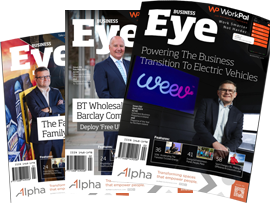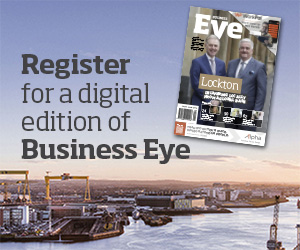MB – The DRS facilitates the parties coming to their agreement. It’s not about the mediator giving his or her opinion. It’s about helping the parties to come to their own decision and their own settlement. It is their process and nothing is imposed upon them.
BS – It is a well-recognised concept. People mediate all the time in their families, communities and sporting clubs. Conflicts do arise in many situations and mediating is a positive thing. It applies in politics, labour disputes and in legal disputes. In short, a trained mediator helps the parties to see the issues and work towards a solution to those issues which is acceptable to them and which deals with what gave rise to the dispute or conflict in the first place.
RD – It’s facilitated negotiation, where a third party helps the parties reach an agreed solution. The important thing is the impartiality of the mediator. That’s not how the legal profession usually operates, of course.
AB – It’s a structured, independent, managed negotiation which aims to empower parties. If parties fall into dispute, they don’t have to use the weapon of last resort, which can be time-consuming and expensive. Mediation appeals to me because lawyers do have insight into how problems can be resolved and into the psychology of dispute. Mediation is cost effective, efficient and saves resources.
TJ – Mediation is all about the needs and rights of the parties concerned, and the mediator’s role is to guide the parties through to a solution.
RB – Tell me more about the benefits of mediation to business clients, for example.
KN – Litigation is a very blunt tool and, as we’ve already said, it is expensive. If you can get people together early, I think there is a great commerciality to it. Maybe the parties can even rebuild relationships and work together again. Litigation doesn’t lend itself to that.
AB – It also allows the parties to build elements into an agreement in a way that a judge cannot do. A judge can simply adjudicate. He or she can’t build anything else in.
BS – Some people have a rose-tinted view of going to court, seeking justice and being proved right. But the court experience isn’t always like that. The mediation process can take in all sorts of views in a way that a court just can’t. So I think you can achieve a lot more through mediation than you can when bound by the constraints of litigation.
AB – That’s correct the litigation process, as we all know, can be cumbersome and is never a fast process.
RD – It’s important not to underestimate the human cost of lengthy litigation. It can be incredibly stressful and disheartening. Mediation is a lot less stressful by its very nature. Empowerment is the right word.
MB – It’s surprising for a lawyer to hear a client say that they don’t want money or damages. Often they just want an explanation or an apology. Take the area of medical negligence. It’s often about what happened and how it happened. Not about money. In court, it can be a simple judgement with no explanation. Victory is not what they want sometimes.
AB – We haven’t mentioned an important factor and that is the neutral territory. Mediation can take place almost anywhere, but it’s always somewhere neutral. You’re not under the shadow of the court and you’re not bound by court rules and times.
RB – We’ve mentioned medical negligence but what are the most common areas of dispute going to mediation here?
MB – Construction and building disputes are a big area.
KN – Yes, and most construction companies just want to get their projects completed to get off site. So they’re actively looking for effective dispute resolutions. Mediation gives them that option and allows them to get back to work.
TJ – Partnership disputes come to mind. Situations, perhaps, where there has been a breakdown in communication. Mediation allows partners to resolve issues in a much more cost effective and quicker manner than by going through the courts.
BS – There are a lot of small businesses in this jurisdiction and the law around those businesses fills metres of law library book shelves. To apply the law relating to boardroom or shareholder disputes, for example, can be very challenging and often isn’t very helpful. In an economy of small family owned businesses an approach which solves dispute and preserves relationships is essential. A mediation process can be so much more creative, and that works really well in a business environment.
AB – I think there are very few situations which don’t lend themselves to mediation. Shareholder disputes, family disputes, right of way disputes, sale of goods disputes…they all fall into the mediation category. There are lots of commercial and civil disputes that are very suitable for mediation, and the DRS has made a big contribution to its continued growth. Parties like it, some government agencies like it, increasing numbers of lawyers like it and judges are seeing it as a way forward.
MB – One of the great moments in any mediation isn’t about what we disagree about, but when we agree about something. I’ve been in processes where we’ve written the issues on a board, and quickly narrowed ten down to three….for sake of argument. So progress can be made very quickly. It doesn’t happen that way in court where the parties are in the trenches. Lawyers look at the big issues but often its the much smaller issues that can unlock an agreement, and that could be missed in litigation.
KN – A judge has to make a final decision. To put it simply, a mediated settlement can be much more imaginative. That’s why the process works the way that it does.
MB – And judges agree with that. In the most private sphere, family disputes, they’d rather not interfere if the parties themselves can come to an agreement. If it needs to be turned into a court order, so be it. At least it has been formulated by the parties concerned and that’s better in the long term.
RD – Any dispute that has a relationship issue – whether it involves neighbours or married couples – has a history. So the dispute on paper might not explain the actual dispute. Mediation allows us to look back at the past from different angles and the interests underneath positions. When it comes to children, for instance, mediation can consider pets, schools and grandparents. The court process simply can’t do that. And an agreement will leave the parties in a much better position going forward because its built in those solid foundations.
KN – Similar to that is the issue of probate. A lot of the arguments revolve around personalities. Much of what motivates litigation is personal but at least mediation can look a bit deeper and come up with solutions that the parties can live with.
RB – Is the public, and the business community, getting the message about mediation?
AB –Most practitioners are well aware of mediation, and younger ones will have had it as part of their training. In fact, there’s a strong argument that practitioners should be bound to offer mediation as an alternative to every client as an option.
MB – And that’s the situation in the Republic where the Mediation Act is now in law and means that lawyers must mention the mediation option to each and every client.
BS – But it’s important to mention that there is, in some cases, an in-built resistance to mediation within the legal profession. We can’t be complacent about that. The combination of judicial encouragement, cost sanctions and experience is helping to change the climate. But I think businesses here in Northern Ireland are buying into the concept. Mediation is something they are very comfortable with….more comfortable than they are with the theatre of the courtroom.
KN – Speed is a big advantage. You can go on to the DRS website and be meeting with a mediator the following week. That’s a big advantage for businesses where time is an imperative.
AB – It can be a challenge to get parties into the same room. But I always tell them that they’re going to end up in the same room one way or another, whether it’s a mediation room or a court. No one can force anyone to do it though and they dictate, to a certain extent, the ground rules.
MB –Mediation can be structured in different ways. If we see that a situation is very embittered, we can take it in smaller steps and work towards being in the same room. As we’ve said a few times already, mediation is a flexible process.
RD – We certainly have a responsibility to ensure that they feel safe, at the very least, going into a mediation process. And that judgement also applies to when we bring the parties together in one space.
BS – Mediation, by any definition, is a process where a neutral party facilitates discussion and the resolution of disputes between other parties. Mediators listen, often for protracted periods, in both open sessions and in private rooms with one party or the other. You only get to a solutions by engaging with the parties in those ways. Until they trust you, they won’t say too much, and that can be a bit counter intuitive for lawyers. Mediation is not about the lawyers talking to each other but about involving the client in identifying the issues important to them and felling they have an active role to play in the resolution.
MB – Parties have to buy into the process. The only headline that comes out is that a resolution has been found. Many disputes require a more detailed agreement, but in other cases, a settlement is all that’s required. To know that the settlement is the only news that comes out of that room is a big comfort to a lot of parties. We all sign up to confidentiality.
AB – That can be important in commercial disputes. Sometimes parties don’t want to come to the courts for consultations because they didn’t want to be seen at the courts. So with mediation you can chose a private venue. Mediation isn’t trying to choose between the arguments of differing parties. It’s a much more holistic approach to a dispute.
RB – Could we hope to see a Mediation Act like they have in the Republic, by which lawyers must advise clients of the mediation option?
AB – I think lawyers here do have a duty to advise clients of mediation in advance of any litigation, but it’s not a statutory duty. It’s a matter of time before a client complains that he or she hadn’t been told about mediation before going to court.
BS – The Republic’s legislation works well, not only in that it applies the obligation to advice, but also that it means that every lawyer must be aware of mediation and how it works. It creates a different dynamic than we have here. Away from the DRS, it’s hard to get information on mediation here.
RD – I don’t think we’d go as far as to say that mediation should be compulsory. Strong encouragement and a responsibility to explore it is what’s required.
MB – Mediation can’t be compulsory, but of course I would like to see a compulsory obligation on lawyers that when they meet a client to discuss litigation, mediation cannot be left off the table.
RB – There are other providers of mediation. What advantages does the Dispute Resolution Service have?
BS – In the broadest sense, you have community mediators, mediators in labour disputes, family mediation services and so on. When it comes to civil and commercial mediation, the Bar Council has its own service but what clients want is a good mediator – different from a barrister. The DRS is unique in that it is a service embracing the legal profession, and offering quality professional lawyer mediators regardless of which branch of the legal profession. And we have solicitors and barristers collaborating in the delivery of mediation.
MB – What’s important to us is that we want people to mediate and use meditation. It’s all about the process. The venue can be important or not important at all. It’s what happens that counts. As long as the mediator and the parties are there, mediation can take place in a pub, club, on the farm or wherever.
AB – That brings us back to types of cases. When it comes to breakdown of marriage, a lot of money is spent on legal representation, cutting into the cake that’s left to be divided. It’s a very practical idea to sort the issues out through mediation.
MB – And that’s not anti-lawyer. Parties will still need legal advice because they won’t be getting any from the mediator.
BS – The vast majority of mediations we have done have been with parties who have legal representation. But it’s not a process where you must have a lawyer. However the process is really important – effective preparation before the mediation, an opening discussion, clear communication with the clients, building trust and examining options and risks.
RD – We want a party to come to mediation with advice on what the reasonable outcomes might be. I think that’s important. Matrimonial cases are a good example of that. A knowledge of entitlements is fairly important.
RB – As a closing question, what are the challenges and opportunities for mediation going forward? How do we see the future?
KN – We hope it will grow because we’re committed to the process. We see the benefits and we see the savings to clients.
BS – The mediation process works. The challenge is that we continue to deliver results and that parties consider mediation as a good experience, and more effective than the litigation process. The DRS is a resource for mediators who are both professional lawyers and trained mediators. That’s what sets up apart.
RD – Everyone in this room is excited about mediation. When you have a mediation that goes well, it’s exciting and it’s satisfying. We want to see awareness of it grow, and that is happening. The courts will always be there, but as a last resort and not a first resort.
AB – It’s a very effective part of the civil justice system at the moment and it is bound to grow. Clients are buying into it, judges want it to expand, and we all want to see it growing. Maintaining standard is important. There’s nothing to stop anyone claiming to be a mediator, and that makes organisations like the DRS all the more important.
TJ – I think it comes back to the basics. It is confidential. And it is voluntary for all parties. So more and more people will be taking the mediation route.
BS – For a business with any kind of dispute on its hands, mediation must be an option. Confidentiality, flexibility, cost effectiveness and the fact that business can be continued are all powerful arguments in its favour.




